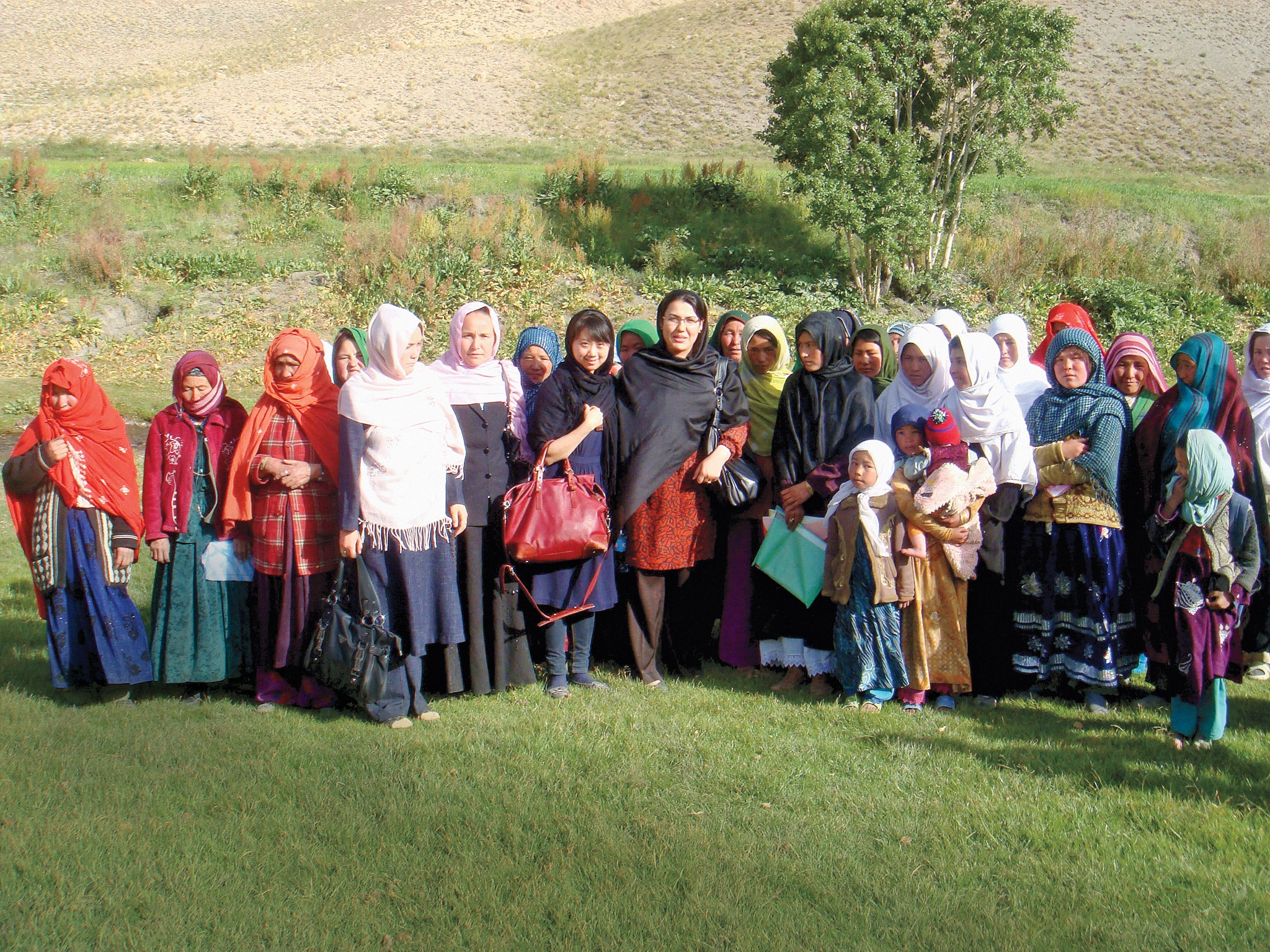Carol Wang ’13 spent two years before law school crisscrossing Afghanistan helping nascent small businesses.
Now, she and three military veterans who served there are building their own small business designed to boost the nation’s long-troubled economy.
Their key ingredient: saffron.
Rumi Spice, the company Wang co-founded in 2014, aims to connect Afghan saffron farmers with U.S. restaurants and convince consumers that the world’s most expensive spice is worth its price.
Wang’s interest in Afghanistan dates back to her first job out of Princeton working at one of the university’s institutes, where she met the Afghan ambassador to the U.N.
She went on to serve for a year as a speechwriter at the U.N. mission before moving to Kabul. She traveled from province to province assisting small businesses, from jewelry makers to almond and potato farmers.
The experience, Wang said, gave her a sense of just how fleeting development aid can be. When she was leaving to start law school, U.S. troops and international attention were dwindling, she recalled, and with them the aid money was diminishing. “There was a real fear among Afghans that all the gains would be lost,” she said. “That fear was something that I couldn’t forget.”
Wang returned to Afghanistan during the summer between her first and second years of law school, helping to draft a village council law for the national government in Kabul. She later wrote a student note on developing the rule of law in Afghanistan for the Harvard International Law Journal.
She’d moved to San Francisco after HLS and started work as a tax attorney when a friend connected her with Kimberly Jung, who had served as an Army platoon leader in Afghanistan before enrolling in Harvard Business School.
Jung and her business school classmate Emily Miller, who had also deployed to Afghanistan with the Army, were looking to make a social impact with their business degrees, and their thoughts turned to the country where they’d both served. (A fourth co-founder, Keith Alaniz, who serves as the company’s president, also served in Afghanistan.)
They seized upon the idea of helping connect Afghanistan’s saffron farmers with the U.S. market. The spice can generate seven times the income for Afghan farmers as the nation’s major cash crop—opium.
“When she told me about this idea she had of bringing Afghan saffron to the U.S., I just immediately saw the potential and the power,” Wang said.
Wang has done legal work for Rumi Spice, from issuing stock to taking out loans and reviewing contracts.
“It’s been really, really helpful,” Jung said. “She’s been very much a part of the business and helped out immensely.”
From 2015 to 2016, Rumi Spice’s farmer corps jumped from 34 to 90 and the number of women working in its processing centers went from 75 to more than 300.
Wang’s work has also taken her back to Afghanistan, where she’s helping make sure that the company follows local laws and that its processing facilities comply with international food and safety standards.
“This is not a project, it’s a company with real people involved, so we have to operate with the utmost care,” Wang said.
Rumi Spice has made headlines in The New York Times and Chicago Tribune and is on pace to generate $500,000 in revenue this year with a customer list including such famous restaurants as The French Laundry and Daniel Boulud’s Daniel. Hundreds more consumers purchase saffron via the company’s website, where one ounce sells for $140.
“We’re trying to target high-end consumers who will pay more for the quality because Afghan saffron is truly the best in the world,” Wang said.
Most important, she said, is the impact in Afghanistan. From 2015 to 2016, Rumi Spice’s farmer corps jumped from 34 to 90 and the number of women working in its processing centers went from 75 to more than 300.
The company already accounts for 5 percent of both Afghanistan’s total saffron production and saffron exports, and it aims to increase the share of Afghan saffron sold abroad to 50 percent.
“The more we sell, the more we have to pay our farmers and develop new training programs,” Wang said. “We really see them as partners.”
